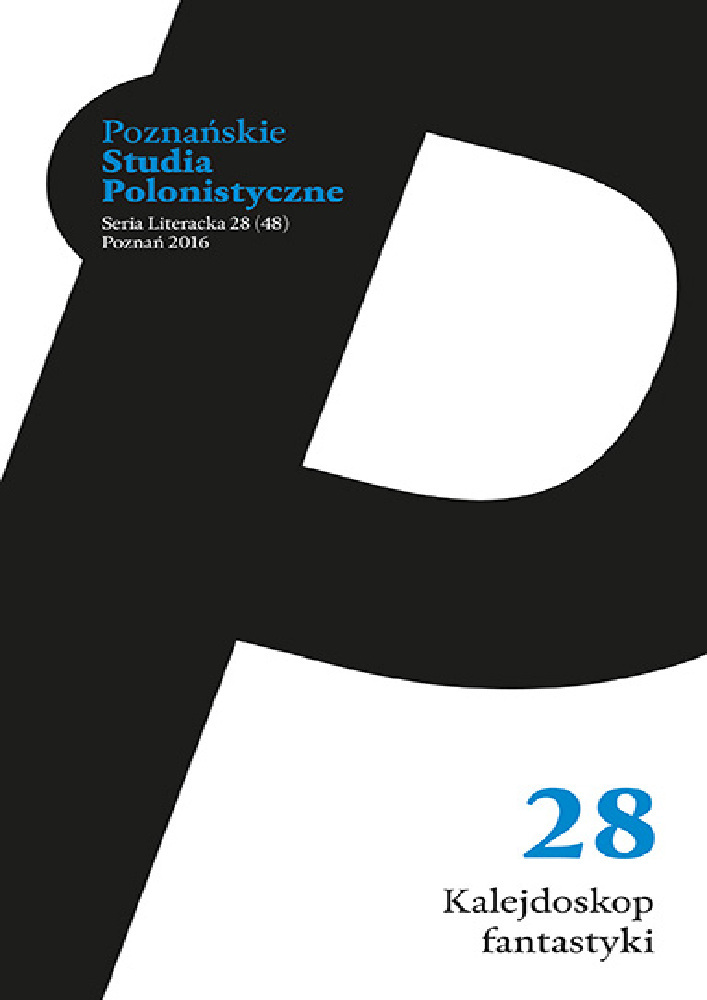Abstrakt
The article discusses several screen adaptations of the drama Dybbuk or Between Two Worlds by Szymon An-ski. Written on the basis of an old Jewish legend, An-ski’s play has provided inspiration for many movies. The four analysed works represent different cultural traditions and film genres and come from different decades of the cinema history. Diverse as they are, these four works emphasize different issues. They are: Dybbuk by M. Waszyński – the best Polish movie in Yiddish exploring the Jewish folklore; A Serious Man by the Coen brothers, with a ‘dybbuk’ prologue that redefines their art towards the Judaic tradition, as well as two other works that are strongly characteristic of the film genres that they represent: The Possession by O. Bornedal, using the poetics of religious horror, and the Polish thriller The Demon by M. Wrona, drawing from the tradition of the national drama as defined by Wesele [The Wedding ] by S. Wyspiański and its screen adaptations and travestations.
Bibliografia
Helman Alicja (2001), Bracia Coen – w połowie drogi, „Kino”, nr 4, s. 48-49.
Mazur Daria (2007), Dybuk, Wydawnictwo Naukowe UAM, Poznań.
Scholem Gerschom (1996), Kabała i jej symbolika, przeł. Ryszard Wojnakowski, Znak, Kraków.
Wrona Marcin (2015), Kręcenie filmów to sportowe wyzwanie. Marcin Wrona w rozmowie z Urszulą Wolak, „Ekrany”, nr 5 (27), s. 46-48.
Licencja
Autorzy
Autorzy tekstów przyjętych do publikacji w czasopiśmie „Poznańskie Studia Polonistyczne. Seria Literacka” są zobowiązani do wypełnienia, podpisania i odesłania na adres redakcji umowy o udzielenie nieodpłatnej licencji do utworów, z zobowiązaniem do udzielania sublicencji CC.
Zgodnie z umową, autorzy tekstów opublikowanych w czasopiśmie „Poznańskie Studia Polonistyczne. Seria Literacka” udzielają Uniwersytetowi im. Adama Mickiewicza w Poznaniu niewyłącznej i nieodpłatnej licencji oraz zezwalają na użycie sublicencji Creative Commons Attribution-NoDerivatives 4.0 International (CC BY-ND 4.0).
Autorzy zachowują prawa do dalszego, swobodnego rozporządzania utworem.
Użytkownicy
Zainteresowani użytkownicy internetu uprawnieni są do korzystania z utworów opublikowanych od 2016 roku w „Poznańskich Studiach Polonistycznych. Serii Literackiej” pod następującymi warunkami:
- uznanie autorstwa – obowiązek podania wraz z rozpowszechnionym utworem, informacji, o autorstwie, tytule, źródle (odnośniki do oryginalnego utworu, DOI) oraz samej licencji;
- bez tworzenia utworów zależnych – utwór musi być zachowany w oryginalnej postaci, nie można bez zgody twórcy rozpowszechniać np. tłumaczeń, opracowań.
Do wszystkich tekstów opublikowanych przed 2016 r. prawa autorskie są zastrzeżone.
Inne
Uniwersytet im. Adama Mickiewicza w Poznaniu zachowuje prawo do czasopisma jako całości (układ, forma graficzna, tytuł, projekt okładki, logo itp.).
